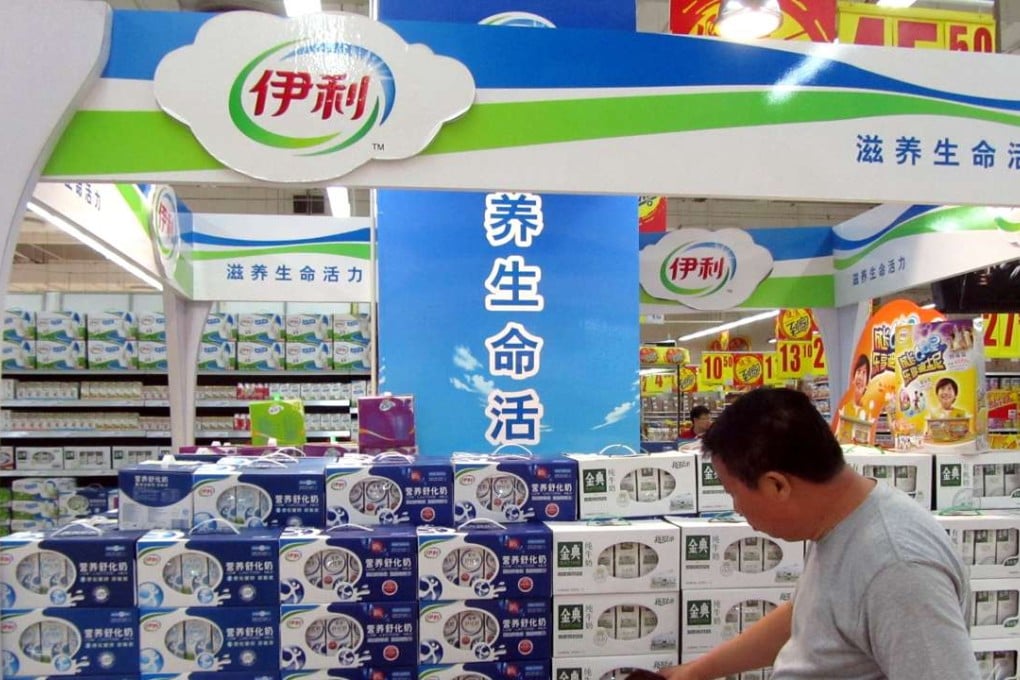New | Yili buys China’s largest organic milk producer, issues poison pill to deter insurer’s hostile takeover
Yili will issue 9 billion yuan of shares to buy control of Hong Kong-traded China Shengmu Organic Milk, as well as dilute Sunshine Insurance’s stake

Inner Mongolia Yili Industrial Group Company has announced a 4.6 billion yuan (US$679 million) takeover of China’s largest producer of organic milk, and issued new stock to create a so-called poison pill to ward off a potential hostile takeover from its third-largest shareholder.
“It’s only the first step in Yili’s defence taken by the corporate board, to make the company hard to take over,” said Shen Meng, executive director of Chanson Capital, a boutique investment bank.
Sunshine used one of its property units to buy 1 per cent of Yili’s shares, emerging as the dairy producer’s number three shareholder with a 5 per cent combined stake, according to a September 19 filing. The insurer pledged it wouldn’t add to its stake for another year, but not before raising concerns of another boardroom tussle similar to the Baoneng Group’s hostile takeover of real estate company China Vanke Company.
Sunshine insisted in its filing the stake purchase was a “financial investment” intended to help the firm’s “future business development,” with no plan to become Yili’s largest shareholder, but analysts were not convinced.
After Yili’s latest manoeuvre, Sunshine’s stake would be diluted to 4.56 per cent, less than state-owned Hohhot Investment’s 8 per cent.
